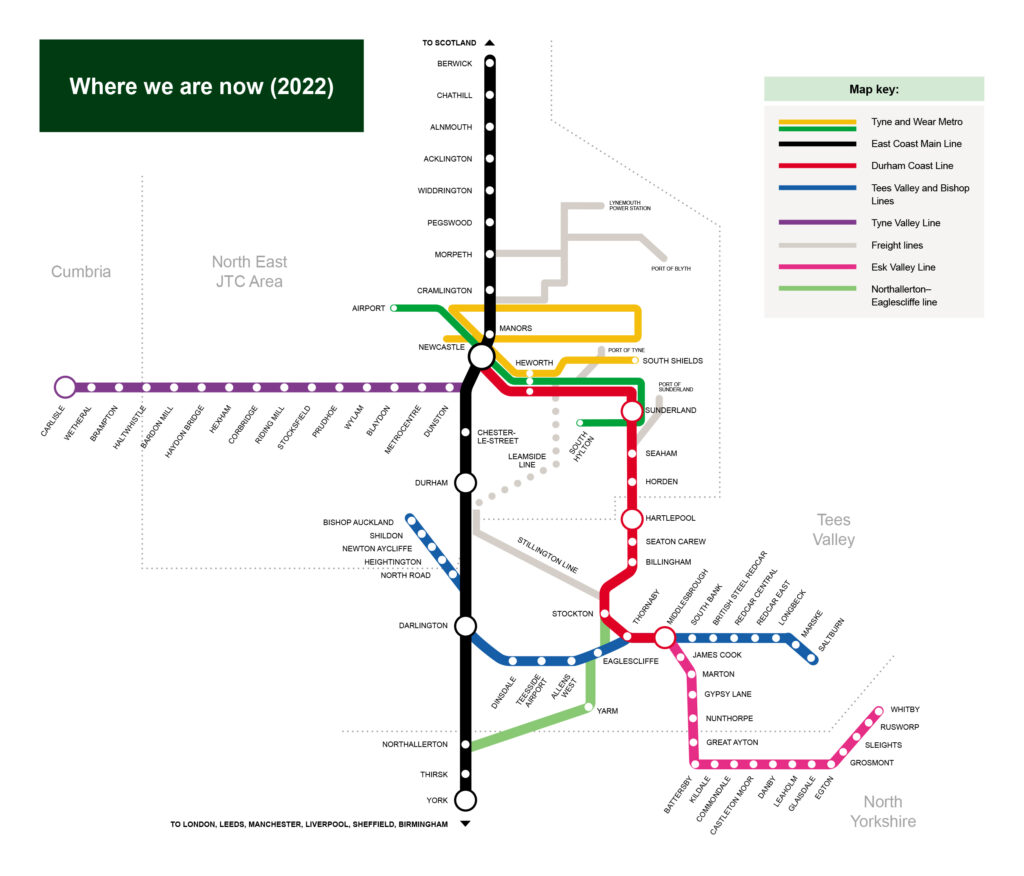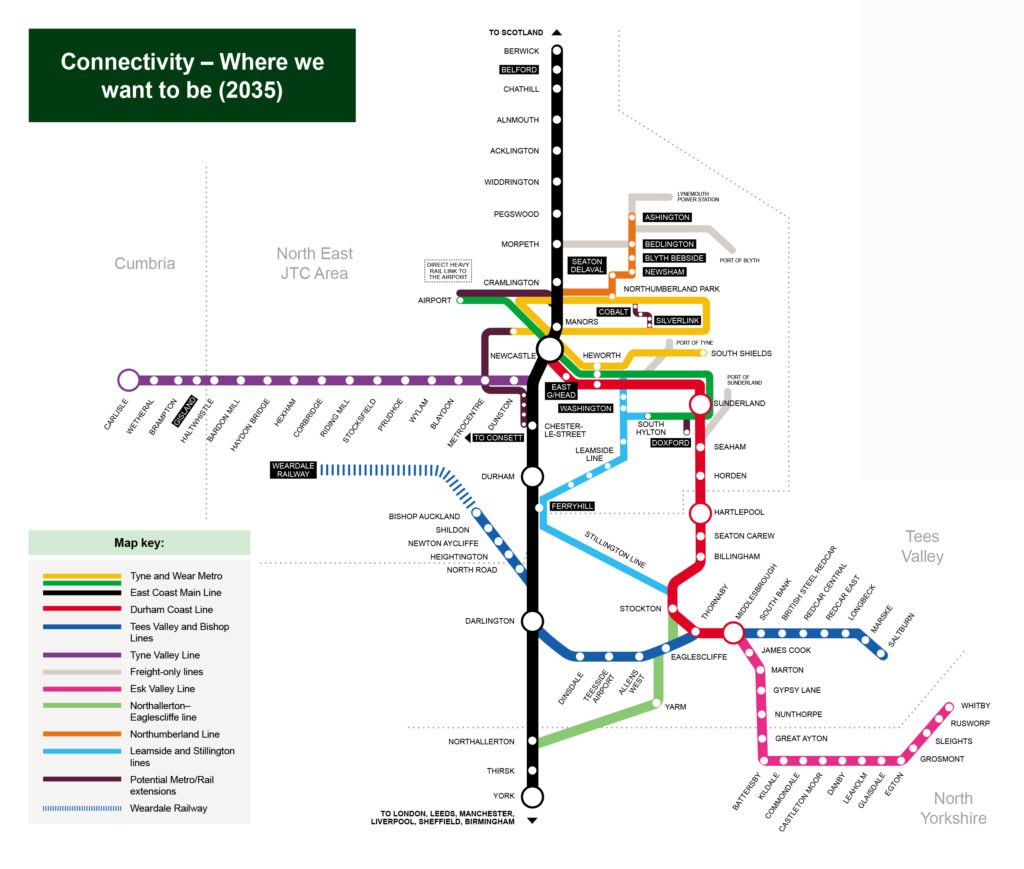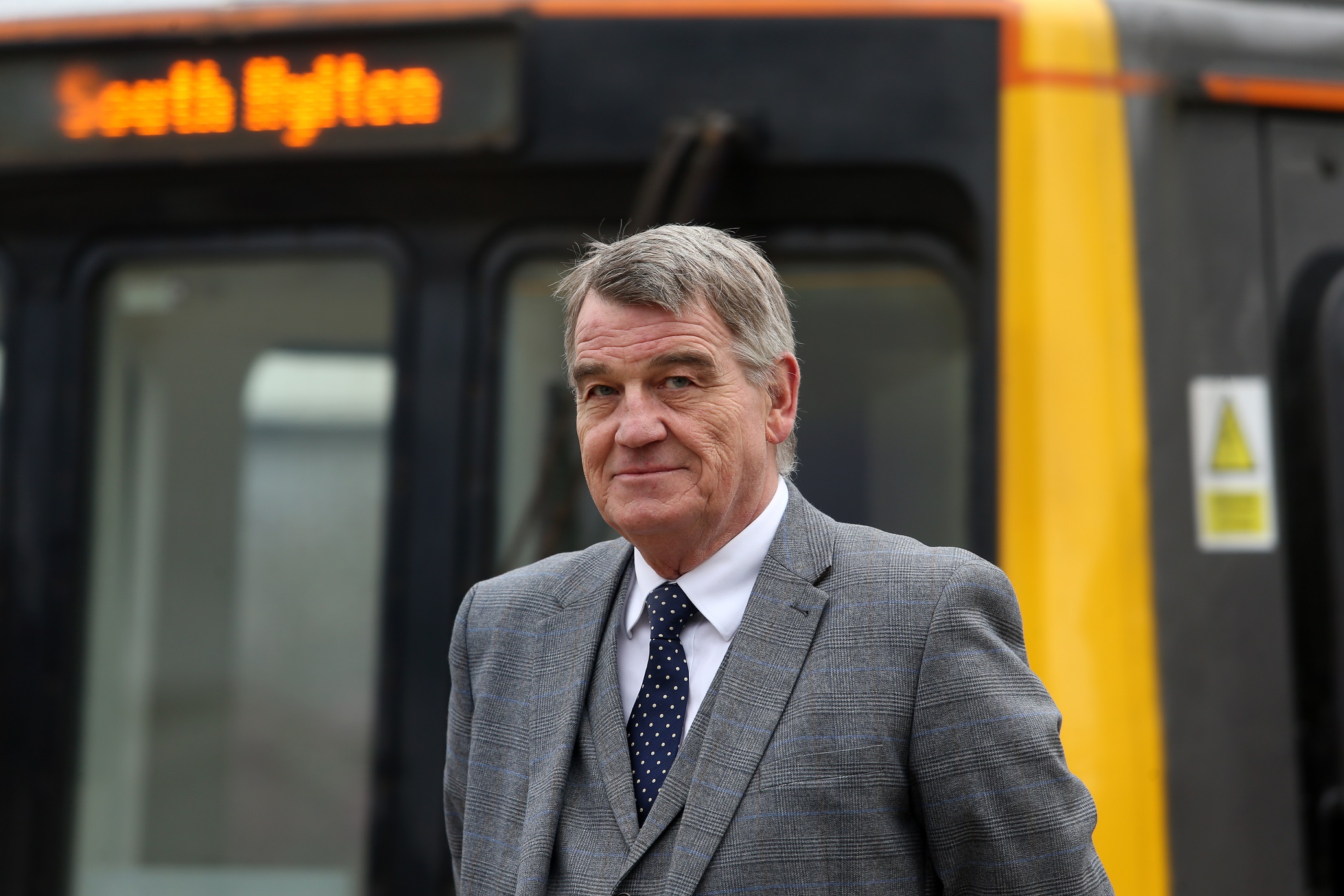Long-term strategy for rail and Metro in the North East unveiled
Members of the public are being asked to have their say on the new North East Rail and Metro Strategy (NERMS) which highlights the region’s rail and Metro ambitions and what the network could look like by 2035.
Developed on behalf of the North East Joint Transport Committee, the strategy outlines the important part rail plays in the day-to-day lives of local people both now and in the future. It follows the adoption of the region’s shared vision for transport, the North East Transport Plan in 2021.
Central to the new strategy is a desire to seek further devolved powers from Government to achieve long-term funding streams so that the North East has the freedom and flexibility to plan ahead and deliver a more seamless, co-ordinated and integrated transport system. For local rail, this would mean getting new regional powers to specify and manage services on a common footing and integrated with Metro. Integration is a key objective within the plan, linking public transport across the Tyne and Wear Metro and rail, and further interworking with the region’s Bus Service Improvement Plan (BSIP) and developing Enhanced Partnership scheme.
Some of the main commitments in the North East Rail and Metro Strategy include;
- Increasing the capacity and resilience of the East Coast Main Line and Durham Coast Line improving connectivity for both passengers and freight;
- Extending the reach of local rail and the Tyne and Wear Metro, upgrading existing networks and services and adding new routes and stations – including the Leamside Line and Northumberland Line;
- Working with Great British Railways to seek greater influence over local rail to match the flexibility and accountability of Metro;
- Maintaining and updating Metro assets, including resignalling;
- Introducing new trains, more efficient electric ones on Metro (the £362m new fleet due to enter service from 2023), and electric/battery/hydrogen trains on local rail also encouraging modal shift from road to rail on freight;
- Improvement of existing stations including Sunderland station, Newcastle Central station and development of new stations including Gateshead East.
The strategy also considers the implications of the government’s Integrated Rail Plan which was published in November 2021, and sets out the region’s commitment to strengthen the case for investment in the North East’s main rail artery – The East Coast Main Line and the full reopening of the Leamside Line.
Cllr Martin Gannon, Chair of the North East Joint Transport Committee, said: “Rail and Metro connectivity is absolutely vital for our region and opens up new opportunities for local people to access work, education and leisure.
“The North East rail system is in need of major investment to improve our rail network and ensure that our region has the capacity and infrastructure we need for generations to come.
“We know that independent reports have shown that levels of transport investment per head in the North East are seven times lower than in London – the disparity between our region and elsewhere in the UK is vast, and we need Government to address this and help us fund our ambitions.
“The Tyne and Wear Metro provides a safe, appealing and sustainable transport choice for local people and we continue to invest in improvements for passengers. Projects including Metro Flow and the new Metro fleet will be truly transformational for the service but we want to do more to revitalise our entire rail network.
“Every journey by Metro contributes £8.50 to the region, so public transport use is a key driver for our economy. Increasing the number of journeys by rail and Metro will help us to tackle some of the biggest environmental challenges we face including air pollution and congestion, so I’m delighted to outline our plans to move our network forward.
“This strategy will be key in future funding bids for the region as we try to secure investment for new routes, stations and the continued renewal and modernisation of our railways. I hope that members of the public take this opportunity to comment on the network improvements proposed here. The case for improvement and expansion of local rail and Metro is simple – the more people who travel, the greater the benefits to the region.
“In the coming years we have a clear opportunity we need to seize with both hands, to transform rail connectivity to, from and within the North East. Whilst we, the North East Joint Transport Committee, think that this strategy sets out an ambitious but achievable connectivity vision for our railways, we want to know what the public think about these plans and whether we’ve got this right. I would encourage everyone – whether you currently use the rail network or not, to read the draft strategy and be part of this consultation so that we can be sure we deliver a rail and Metro network that is right for local people.”
Have your say
Members of the public are asked to comment on the proposals and share their thoughts. The public consultation opens today 14 February 2022 and runs for eight weeks until noon on 11 April 2022.
There are a number of ways local people can be part of the consultation.
- Call us – you can speak to a member of our rail team on 0191 433 2973 (Monday and Tuesday each week throughout the consultation from 9.30am-4.30pm)
- Email us – you can email any comments, questions or suggestions to railandmetro@transportnortheast.gov.uk
- Take part in an online survey at www.transportnortheast.gov.uk/railandmetro
A number of online consultation events will take place in March and April where members of the public can find out more about the draft strategy and ask questions.
Consultation events (online)
- Saturday 5 March 10:00am
- Tuesday 22 March 12:00pm
- Thursday 31 March 10:00am
- Tuesday 5 April 18:00pm
Register a place to attend one of the sessions via Eventbrite or call 0191 433 2973. Please note sessions will take place via Zoom.
The North East Rail and Metro network – now vs 2035
The draft North East Rail and Metro Strategy includes a number illustrative maps of where the region is now and where we want our rail and Metro network to be in the years ahead. Please note all graphics are indicative and illustrative in nature.
Illustrative map of 2022 – North East Rail and Metro network

Illustrative map of the 2035 North East Rail and Metro network (outlining regional ambitions)


